A new series from Mooney Goes Wild in assocuation with University College Cork, ()Summer 2024).
Hosted by Derek Mooney, Mooney Talks, a series of short lectures by experts on particular areas of natural history will be recorded before a live audience in UCC on Friday 3 May and broadcast in their entirety on RTÉ Radio One later this year.
The historic and cultural links between Irish people and trees, Ireland's wild falcons, the plastics destroying our oceans and how our ecosystems are changing due to climate change will be among the nine 15-minute presentations by leading UCC academics and Mooney Goes Wild team members including Éanna Ni Lámhna and Niall Hatch from Birdwatch Ireland.
"It is wonderful to team up with Derek to showcase some of the stunning environmental research we do here in UCC" states Professor John O’Halloran, President of UCC.
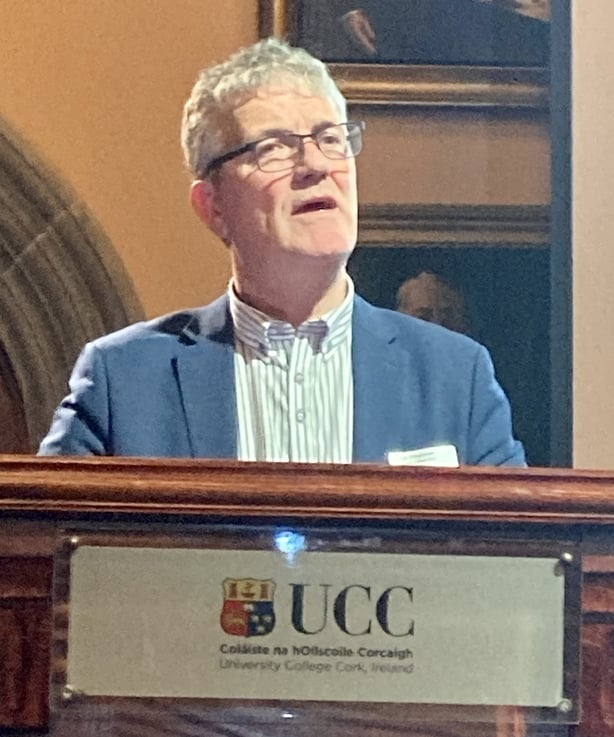
"UCC has such a wonderful community of researchers working on our natural world and I hope the public comes to join us for what promises to be a special afternoon" states Derek Mooney.
List of Speakers
Mooney Goes Wild Team
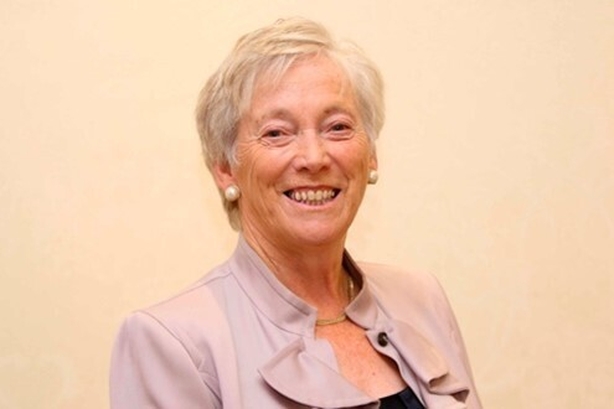
Éanna Ni Lámhna, Environmentalist, author and broadcaster- Making Wildlife Interesting
Éanna is a botanist by profession and a zoologist by passion. She is publicly on the side of the environment as evidenced by her stint as presidents of An Taisce and The Tree Council of Ireland. She is the author of nine books on the world around us. All her life she has been talk, teaching, writing about wildlife but she now feels that it has become even more difficult to awaken interest in our natural world among an audience whose attention span is getting ever shorter. So this presentation cuts to the chase, focussing on the really attention- grabbing facts about some Irish wildlife, rather than padding out with figures and references etc.
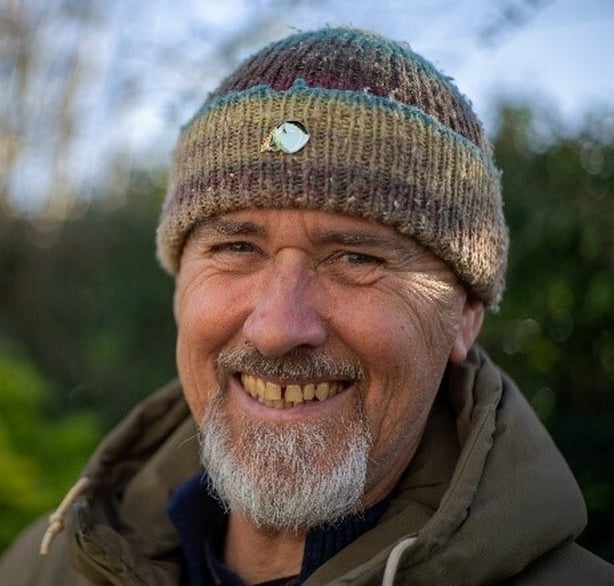
Jim Wilson, Wildlife tour guide, author and broadcaster- How Do They Do That?!
Bird migration has been a fascination for humankind for millennia. Always wanting answers, we have theorised about where birds go after spending their breeding or non-breeding seasons with us. These theories have changed and evolved over time, and no doubt will do so into the future as we learn more and more about these feathered marvels of nature. In my talk I will take you on a whistlestop tour of the history of our understanding of bird migration and finish with some food for thought on how much we actually know and how much more we still have to learn.
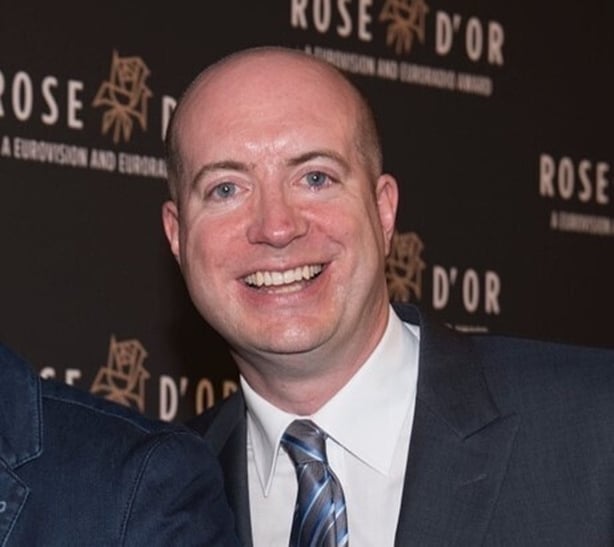
Niall Hatch, BirdWatch Ireland, scientific consultant and broadcaster- Ireland's falcons
Falcons are surely amongst the most captivating and impressive of all birds; supreme predators that can be found virtually all over the globe. For some, they represent the pinnacle of avian evolution. Niall will discuss the key features and adaptations which set falcons apart from other birds of prey and will give an overview of each of the wild falcon species that has been recorded in Ireland, their ecological requirements and their conservation status.
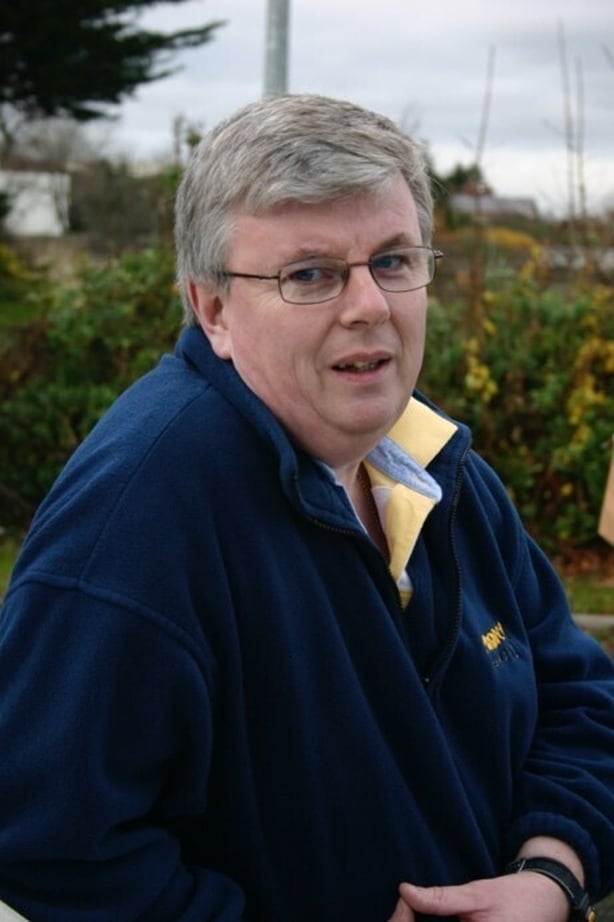
Terry Flanagan, Environmentalist, educator and broadcaster- The world of "Poo"
Probably the least expected topic for such a lecture. "Poo", or faeces, to give it the correct name, is one of the commonest materials on Earth, yet many people ignore it's properties and uses. It was once the most expensive commodity on the planet being used to produce fertiliser and gunpowder. It comes in various sizes and shapes, wet or dry. Some animals even eat their own poo while others use dung to source a first date! Terry delves into all these weird and wonderful facts about Poo. To most of us poo might be interesting but to some it could. be life saving
UCC Researchers
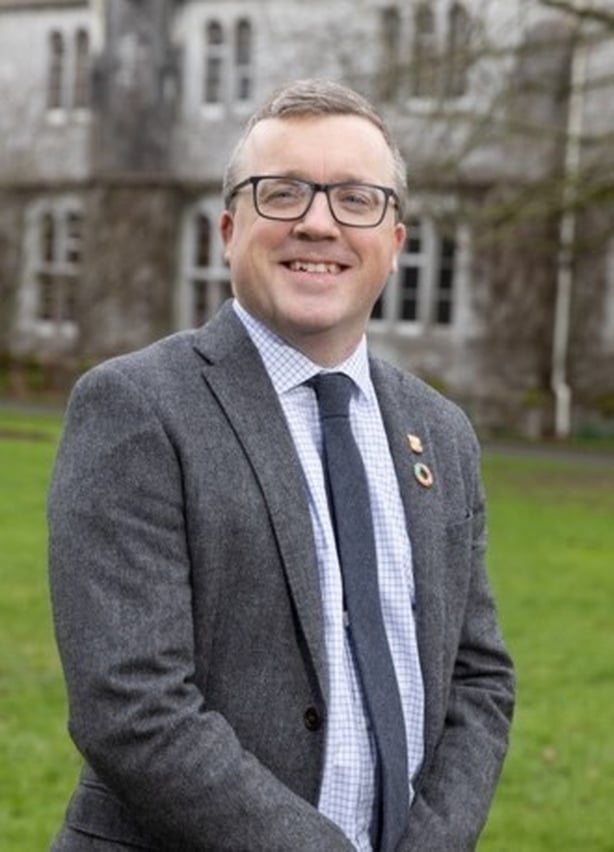
Dr Eoin Lettice, School of Biological, Earth and Environmental Sciences- Exploring Irish Trees
Despite its green image, forests make up just 11% of the Irish landscape. Across Europe the average figure is 35%, making Ireland one of the countries with the least tree cover on the continent. Given that trees once covered up to 80% of the island, their loss, predominantly due to clearance for agriculture during the neolithic period, has left Ireland with the agro-centric landscape we know today. But at what cost?
This short talk will explore the historic and cultural links between Irish people and trees as well as looking at the current political and policy landscape that will attempt to restore at least some of these trees in the interests of commerce, climate change mitigation and adaptation and protecting biodiversity. The Irish Tree Explorers Project (ITEN) is a Science Foundation Ireland project which aims to foster public engagement with trees and historic tree collections across Ireland.
The talk will showcase some of the tree collections being utilised in the project, including UCC Arboretum, Co. Cork; Coole Park, Co. Galway (the home of Lady Gregory); Avondale, Co. Wicklow (the birthplace of Charles Stewart Parnell) and the JFK Arboretum, Co. Wexford (near to the ancestral home of the former US president). Additionally, the role of the network for supporting further research projects will be explored, including the Tree Microbiome Project, which ITEN is a collaborator on.
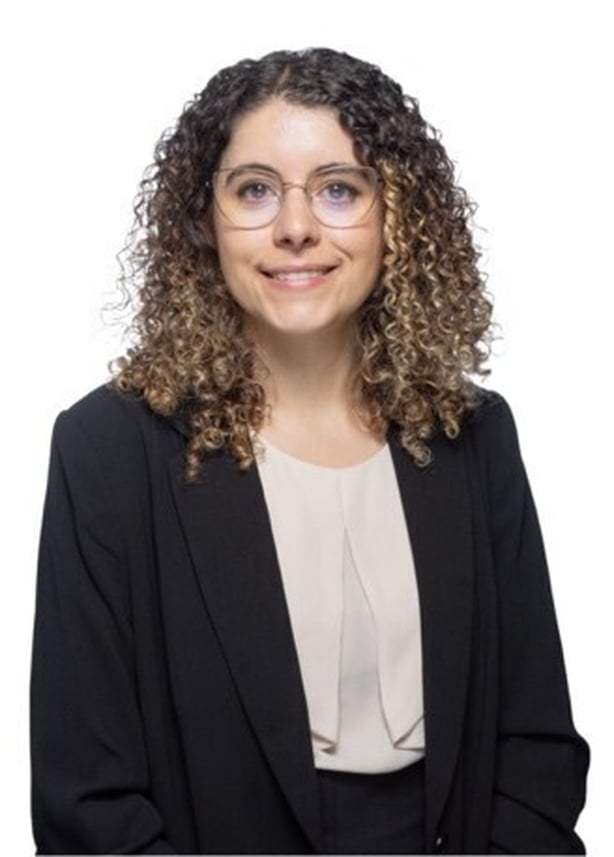
Dr Alicia Mateos- Cárdenas, School of Biological, Earth and Environmental Sciences- Microplastic and cellulosic microparticles in the deep waters off the Irish coast
Dr Alicia Mateos-Cárdenas is a microplastic pollution expert with more than 6 years of research experience in the field. Her postdoctoral project focussed on the presence of microplastics in the deep sea. Dr. Mateos-Cárdenas and the UCC Marine Geoscience team explored microplastic and cellulosic microparticles in the deep waters off the Irish coast, about 320km off the coast of Kerry, finding them in habitats as deep as 2126 meters.
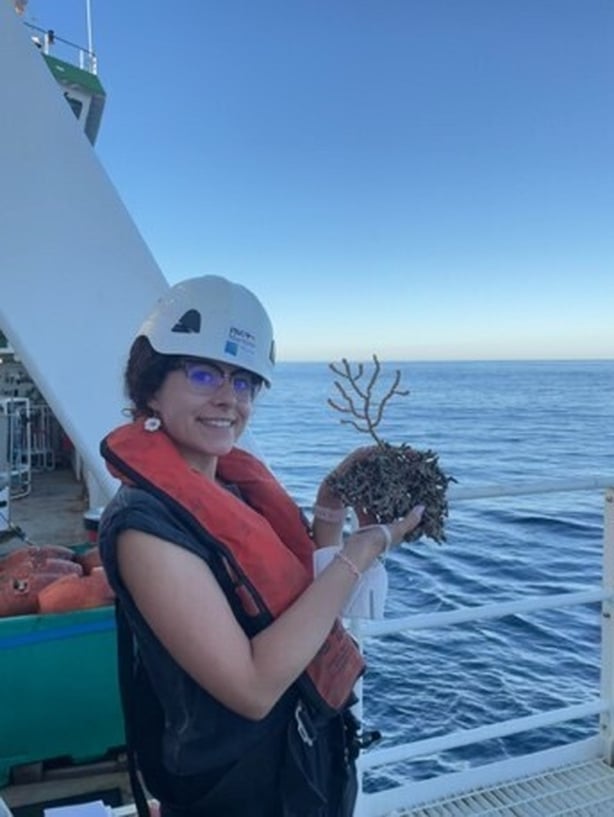
Their study revealed that these particles are being ingested and adsorbed by deep-sea corals, highlighting their vulnerability to pollution. Another interesting finding was that rayon, a type of cellulosic-based (not plastic) synthetic fibre, is prevalent in both water and coral samples, suggesting non-traditional sources of marine pollution beyond plastics and potentially linked to terrestrial origins.
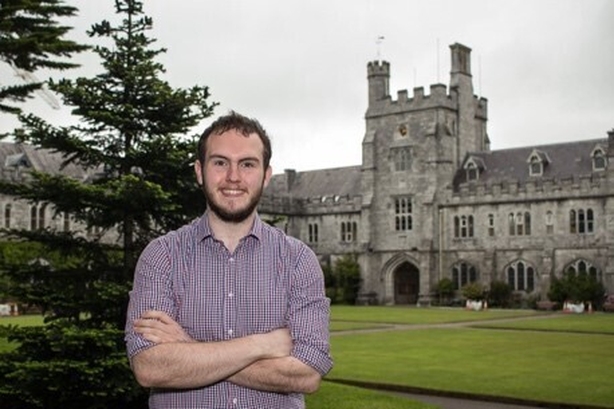
Daniel Moloney, School of Biological, Earth and Environmental Sciences-Conservation of cheetahs and natterjack toads
Daniel Moloney is a PhD student working with UCC and Fota Wildlife Park to understand how zoos help to protect and conserve endangered animals. He works mostly on natterjack toads and cheetahs, looking at the ways that zoos try to increase the numbers of these animals in the wild and look after the health and wellbeing of animals kept in captivity. Daniel will be speaking about how his work on these species is trying to improve the future of their care and contribute positively to the outcome of conservation projects. He hopes to achieve these goals by making new tools and testing new techniques for checking and understanding the health and survival of these animals.
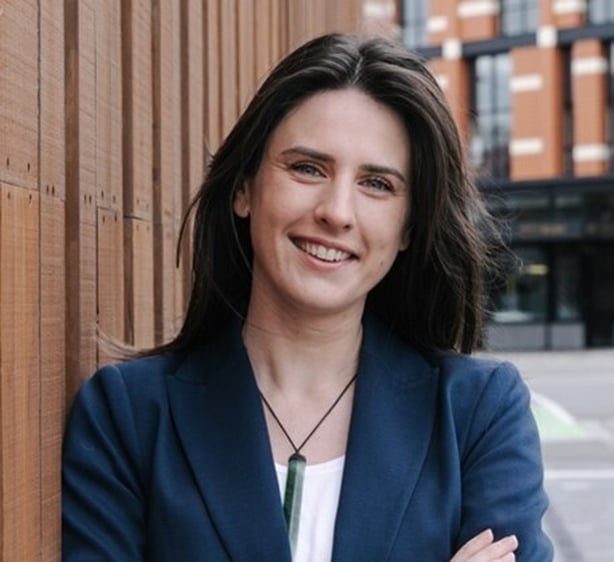
Dr Michelle McKeown, Department of Geography- How ecosystems respond to changes in climate and human activities
I am passionate about protecting our environment and maintaining a healthy world. As an environmental geographer, I am interested in understanding how ecosystems respond to changes in climate and human activities, along with understanding how we can work with nature to enhance climate action. I am fortunate to have active research projects in temperate and tropical locations focusing on refining our understanding of long-term climate dynamics and developing tools to monitor and assess environmental integrity.
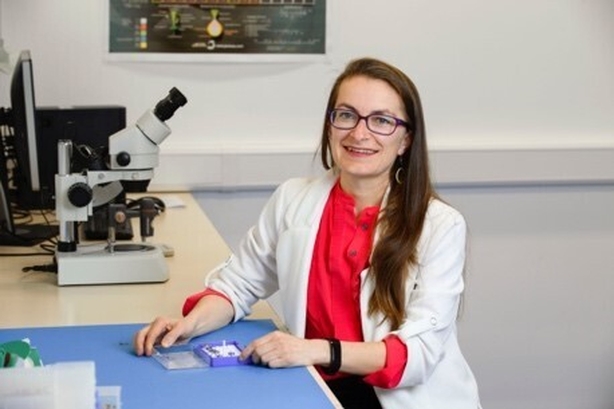
Prof Maria McNamara, School of Biological, Earth and Environmental Sciences- Jurassic Park – could it really happen?
The Jurassic Park franchise is one of the highest-grossing film series of all time and has captivated audiences for almost 30 years with tense life-or-death scenes of scientists and unlucky members of the public trying to avoid dinosaurs and a gory demise. Part of the appeal of the series is that the science underpinning the action seems plausible, but how likely is it? Could we really bring dinosaurs back to life? Even if we could, would it be ethical? In this talk, Prof. Maria McNamara from UCC will discuss the real-life science of fossil biomolecules and will use examples from her own research to explain how we extract biomolecules from fossils and whether we can trust this fossil evidence.
The limits of the fossil record – reconstructing the behaviour of ancient animals
One of the most elusive aspects of fossil biology is behaviour. How did ancient animals communicate with each other? What sounds did they make? What did they look like? Where did they mate, and did they care for their young? In this talk, Prof. Maria McNamara from UCC will discuss the science of fossil behaviour and will use examples from her own research to showcase the cutting-edge techniques that palaeontologists today use to answer these questions – and how we can use fossilization experiments to test the fossil evidence.

